The Forum
Overview
The public event aims to bring together leaders, decision-makers, entrepreneurs, scholars and intellectuals to discuss pressing issues of the MEM region. Topics range from new geopolitical configurations to migration dynamics, through security in the Mediterranean health and food systems, endangered cultural heritage, to Euro-Mediterranean Partnership, and municipalities in the region. Young change-makers have a unique opportunity for exchanging views with senior representatives and experts, and presenting ideas and project-proposals elaborated before the Forum.
The Forum 2021
Watch the Forum 2021
MEM Summer Summit Forum 2021
Watch the Forum in italian: MEM Summer Summit – Forum 2021 (italiano)
Discover the Panels of the Forum
Panel 1 – New geopolitical configurations in the MEM region
Turki Al-Faisal, Chairman, King Faisal Center for Research and Islamic Studies, Saudi Arabia
in conversation with
Gilles Kepel, Professor, Università della Svizzera italiana and PSL Paris Sciences et Lettres-École Normale Supérieure, France and Switzerland
Reem Al Otaiba, Young change-maker
Alaa Elaroush, Young change-maker
Chairman: Matteo Legrenzi, Professor, Ca’ Foscari University of Venice, Italy
Panel 2 – The religious sphere in the MEM region
Wasim Salman, Professor, Pontificium Institutum Studiorum Arabicorum et Islamicorum (PISAI), Syria Nayla Tabbara, President of Adyan Foundation, Lebanon
Mario Giro, Sant’Egidio Community, Italy
Hadi Damien, Young change-maker
Chairman: Luca Steinmann, Journalist, Fondazione Federica Spitzer, Faculty of Theology of Lugano, Italy
Panel 3 – Economic development of the region: new harbours and new powers
Giampiero Massolo, President of Fincantieri, President of ISPI, Italy
Pascal Ausseur, Vice-Admiral and General director of Institut Fondation méditerranéenne d’études stratégiques, France
Karim El Aynaoui, Faculté de Gouvernance, Sciences Economiques et Sociales, Policy Center for the New South, Morocco
Inbal Perlman, Young change-maker
Chairman: Luca Fasani, Journalist, RSI Radiotelevisione svizzera, Switzerland
Panel 4 – Rethinking the food systems in the MEM region
Marylaure Crettaz Corredor, Head Global Programme Food Security, Swiss Agency for Development and Cooperation, Switzerland Giorgio Marrapodi, Director General for Development Cooperation, Ministry of Foreign Affairs and International Cooperation, Italy Pio Wennubst, Ambassador, Permanent Mission of Switzerland to the United Nations organisations in Rome, Switzerland
Amin Emadi, Young change-maker
Chairman: Emiliano Albanese, Professor, Università della Svizzera italiana, Switzerland
Conversation on Cinema across borders
Giona Nazzaro, Artistic Director, Film Festival Locarno, Switzerland
Bassel Ghandour, Film Director, Jordan
Forum 2021 Programme
The Forum of the MEM Summer Summit will be streamed on the 28 August at 10:00. You can find the programme of the Forum below. The full programme will be available soon.
This panel explores the current configurations of the MEM region, in particular the Abraham Accords and the new direction of the Biden administration in the region.
2020 will be remembered as the year of the COVID-19 pandemic and the oil price collapse, and one which witnessed all sorts of unexpected turmoil, reaching from the Middle East Mediterranean region to the European suburbs. Fragmentation occurred in the Israeli-Palestinian conflict. On the one hand, the signing of the Abraham Accords, which include the United States, the United Arab Emirates, Morocco and Sudan, Israel, aggregating Egypt and Saudi Arabia, and with an eye on Iraq. On the other hand, the “Brother-Shia axis” brings together Gaza, Qatar, Turkey, and Iran with the ad-hoc support of Russia. During these seismic upheavals, Beirut exploded and refugees and illegal migrants flocked to Europe; the Turkish president, Erdogan, wants to make Istanbul the global centre of Islam. 2021 is the year that has marked the Pope’s visit to Iraq, the resurgence of the Israeli-Palestinian conflict described by Professor Kepel as “the eleven-day war”, the worsening of the socio-economic crisis in Lebanon, political instability and lack of governance in Tunisia, the withdrawal of the United States from the region and Afghanistan where the Taliban have regained territory and power. 2021 is also a year of recurrences: ten years have passed since the Arab Spring and the conflict in Syria; twenty years since the terrorist attacks of September 11, which radically shattered international relations. How terrorism has changed during these years and where the Middle East Mediterranean region is going are two complex issues that will be addressed during the MEM Summer Summit 2021.
Analytics tools will be provided to analyse the region’s complexity: current configurations will be put into the context of global history, to stimulate a broad reflection on contemporary challenges. This evolving region has, in fact, a significant impact on international dynamics, on Europe and its political structures.
The key-note speech at the MEM Summer Summit 2020 of French President Emanuel Macron was structured around four pillars, including religion. This panel offers an analysis of the fragmentation and pluralisation of the religious sphere, the individualisation of religion and the controversial relationship between religion and politics in the region. The Abraham Accords and the visit of Pope Francis to the UAE in 2019 and to Iraq in 2021 seem to open a space for interfaith dialogue in the region. Could the encounter between different religions and between different ethno-confessional groups be instrumental in overcoming conflicts? Could the encounter between different religions be a valid means to mend the torn Syrian social fabric? Can it foster greater internal stability that contrasts with growing poverty and halt the massive exodus of young people?
Ports such as Ceuta, Tangier, Djen-Djen, Bizerte, Damietta or Port Said are a new generation in the Mediterranean and will surely change the map of transport and economy in the south of this region. The growth of seaports is not enough to adapt to the accelerated rate of economic growth, but new concepts, such as logistic chains, have to be applied to understand the new relationship between peoples, territories, economies and movement of goods. The oil price collapse of 2020 pushed the oil producers to promote an energetic transition towards more sustainable sources. Furthermore, the emergence of new actors in the Mediterranean region has resulted in new economic, military, and ideological power struggles with a change in the region’s patterns of interstate conflict and cooperation.
This panel is organised in partnership with the Swiss Agency for Development and Cooperation and the Permanent Representation of Switzerland at the United Nations in Rome, in continuity with Transfoodmation project. The MENA food system is becoming increasingly more complex. Climate change, population growth, shifts towards urban living and the adoption of Western diets bring mutually reinforcing challenges. The MEM region has one of the highest rates of population growth worldwide and a rapidly growing urban population, with 66% expected to be living in cities by 2030. Food insecurity is one of the main drivers of unrest and conflicts in the MEM region. In addition to that, water scarcity and climate change are common challenges in the region. “The 2021 UN Food Systems Summit” will seek to engage donors and the international development community to transform food systems such that they are inclusive, sustainable, healthy and resilient, and in line with the Sustainable Development Goals.
Conversation between the Artistic Director of the Locarno Film Festival Giona Nazzaro and the Jordanian Film Director Bassel Ghandour on the importance of co-production in cinema and changing narratives in the region. Bassel Ghandour talks about his film “The Alleys” that was premiered during this year’s edition of the Locarno Film Festival.
The COVID-19 health emergency and the containment measures put in place by the various countries worldwide have brought about, as is well known, a collapse in oil prices. This had a knock-on effect on the economy, as well as on politics and society. Some will argue that the sun may be about to set on the undisputed power of Middle Eastern petromonarchies. In this context, Libya, ripped apart by internal tribal divisions and very much the focus of international interests, provides fertile ground and matter for reflecting on the present and future of oil producing countries. The panel is made up of speakers from the oil industry and shipbuilding. They all contributed, from their expertise, to outlining the current situation and possible future scenarios.
Pio Wennubst talked about “Bites of Transfoodmation”, an initiative launched and run by the Permanent Representation of Switzerland to the FAO, IFAD, and WFP. The event will take place in Rome on 20—24 October and bring together highly motivated and innovative young people to reflect on the future of food systems. The Middle East Mediterranean region, where food and its production play an extraordinary cultural and socio-economic role, is badly affected by climate change, by growing urbanisation, and escalating primary goods prices.
Language
English and French, with Italian subtitles.
Speakers 2021
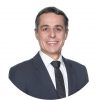
H.E. IGNAZIO CASSIS
Head of the Department of Foreign Affairs (FDFA), Switzerland
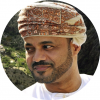
H.E. SAYYID BADR BIN HAMAD BIN HAMOOD AL BUSAIDI
Foreign Minister of the Sultanate of Oman, Oman
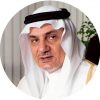
H.R.H. PRINCE TURKI AL FAISAL
Chairman, King Faisal Center for Research and Islamic Studies, Saudi Arabia
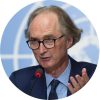
GEIR O. PEDERSEN
The UN special envoy for Syria, Norway
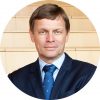
BOAS EREZ
Rector, Università della Svizzera italiana, Switzerland

GILLES KEPEL
Professor and Scientific Director of the Middle East Mediterranean Freethinking Platform, Università della Svizzera italiana, Switzerland; PSL Paris Sciences et Lettres-École Normale Supérieure, France

EMILIANO ALBANESE
Professor, Università della Svizzera italiana; Director, WHO Collaborating Center for Research and Training in Mental Health, University of Geneva, Switzerland

PASCAL AUSSEUR
Vice-Admiral and General director of Institut Fondation méditerranéenne d’études stratégiques, France
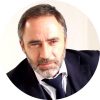
PATRICE BERGAMINI
Vice-president Public Affairs and Governmental Contracts Business Development of CMA CGM Group, France

MARYLAURE CRETTAZ CORREDOR
Head Global Programme Food Security, Swiss Agency for Development and Cooperation, Switzerland
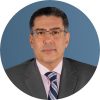
KARIM EL AYNAOUI
Faculté de Gouvernance, Sciences Economiques et Sociales, Policy Center for the New South, Morocco

BASSEL GHANDOUR
Film Director, Jordan
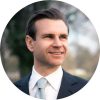
MATTEO LEGRENZI
Professor, Ca’ Foscari University of Venice, Italy
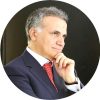
GIORGIO MARRAPODI
Director General for Development Cooperation, Ministry of Foreign Affairs and International Cooperation, Italy
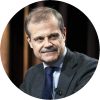
GIAMPIERO MASSOLO
President of ISPI (Istituto per gli Studi di Politica Internazionale), President of Fincantieri, Italy
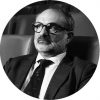
GIONA NAZZARO
Artistic Director, Film Festival Locarno, Switzerland

DIANA SEGANTINI
Advisor for Arts, culture, heritage and media, Switzerland
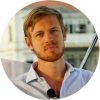
LUCA STEINMANN
Journalist, Fondazione Federica Spitzer, Faculty of Theology of Lugano, Italy

NAYLA TABBARA
President of Adyan Foundation, Lebanon
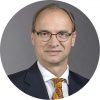
PIO WENNUBST
Permanent Representative, Permanent Mission of Switzerland to the United Nations organisations in Rome, Switzerland
Watch last year's edition of the Forum
MEM Summer Summit Forum 2020
Emmanuel Macron’s speech during the MEM Summer Summit
The French President Emmanuel Macron, in a video message, spoke about the importance of the region and its political balance, focusing on the conflicts in Syria and Libya and the crisis in Lebanon. The analysis of the French President – invoking for collective responsibility to find shared solutions – is structured around four pillars: religion, demographics, energy and politics.
Practical Information
Transport
By train: Lugano is one of the principal stops on the main European North-South route and can be reached from many cities in the northern and southern part of Europe by direct day or night train connections. Check trains and updated departure times from/to Lugano here.
By plane: The quickest way to get to Lugano from most places abroad, will be through a number of airports listed below:
- From Milano Malpensa: The S50 is the train line that connects Lugano and Malpensa. Check trains and updated departure times here. Direct bus connections to Lugano are available on demand. To make a reservation contact Giosy Tours at +41 79 133 53 23.
- Lugano Airport is served by Swiss International Air Lines. From the airport, you can take a shuttle bus to the centre of the city or a taxi.
- Zurich Airport: As an alternative you might consider flying to Zurich and use the train to travel to Lugano (overall, a 2h journey). There is a direct, hourly train from Zurich main station to Lugano. It is a chance to experience the longest train tunnel in Europe by passing under the Gotthard.
Visa
For citizens of the following countries, only a valid passport is required to travel in Switzerland: Americas (except Belize, Dominican Republic, Haiti, Colombia and Peru), Europe, Japan, Australia and New Zealand. Passport holders from other countries should consult the relevant visa requirements.
Please note that the general visa and entry procedure is described in detail in this information sheet.
Leisure
The Lugano region is well-known for the beauty of its landscape, lake, mountains and Mediterranean vegetation.
For further information: https://www.luganoregion.com/en
